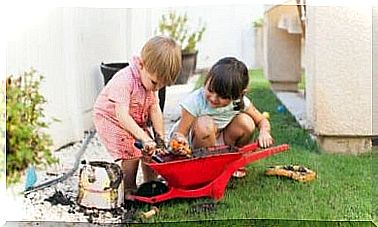How To Build Resilience In Children

Although we want to protect our children from any suffering, throughout their lives they will have to face numerous obstacles and adverse situations. How you react to these situations can determine whether they will cause irreparable damage or whether they will help you grow stronger. Therefore, it is extremely important to develop resilience in children.
Resilience is not just about moving forward after going through a complicated or painful experience, but also being able to develop resources, skills, and self-confidence as a result of that event. Since we cannot prevent children from suffering, we must provide them with the psychological and emotional resources that make it possible to get something positive out of this pain.
Can children be resilient?
Resilience is generally considered an adult ability that is acquired with age and maturity. However, childhood is the ideal time to start developing it.

It is in their early years that children learn ways to react to environment and events. And these learnings become enduring patterns that tend to repeat themselves. If from the beginning we show them how to deal with frustration, conflict and difficulties, we will be avoiding suffering in the future.
Tips for Building Resilience in Children
Resilience is primarily taught at home, through adult example and everyday actions. Some of the main aspects to be covered are as follows.
Establish good interpersonal relationships
Children who have a strong support network are much better able to face and overcome adverse situations. Having love, comfort and support reduces the emotional impact of an unfavorable circumstance. Therefore, try to foster your child’s bonds with other important people, such as family, friends, colleagues, etc. Social relationships are a big protective factor.
Have good assertive communication
The outcome of a conflict often depends on how the situation is approached. Thus, if a child has developed good communication skills, he will be able to deal with disagreements and negotiations in a healthier way. So teach your children to express themselves in a respectful but clear way, that is, in a way that allows them to set boundaries when necessary.
Helping others to build resilience in children
When facing obstacles or painful events, children may feel powerless, worthless and unable to make a difference with their actions.
That’s why helping others can be good for them to develop self-confidence, and feel useful and capable. Encourage your child to have empathy and compassion for the suffering of others, offering listening, comfort and support to those in need. That way, he will also know how to help himself and let himself be helped when he needs it.
learn to take care of yourself
Self-care with the body and mind is essential to be able to come out stronger from any trauma or setback. Therefore, helping children to establish healthy habits and routines is very positive. Maintaining a balanced diet, exercising regularly, expressing your emotions, and learning to regulate them through breathing and other simple techniques are valuable resources from childhood onwards.
Work on self-esteem
Experiencing a failure or a painful event can lead the child to think that he, as a person, is insufficient and that what happened is his fault. Thus, it is necessary for her to have a solid and healthy self-esteem, which allows her to remember that her value is unquestionable and that she is able to move on despite what happened.
Knowing that change is part of life

Being resilient is accepting that change is part of life and using it as an engine to improve as a person. The same event can be interpreted as a crisis or an opportunity. And those who flow with change, rather than resisting it, are able to avoid or reduce suffering. Help your child accept change rather than fear it.
Encourage positive thoughts to build resilience
When facing adversity, it is common to fall into pessimism, feeding back negative emotions. Therefore, it is important to encourage positive thinking in children. This will help them identify the aspects of their lives that work and the opportunities and resources they have to move forward. It will also help them look to the future with the hope that everything can always get better.
In short, building resilience in children helps them deal with frustration, conflict and adversity. Academic difficulties, social rejection, illness or family problems can be a source of stress and emotional distress. However, a resilient child will go through these events acquiring learnings and coming out strengthened from that experience.









